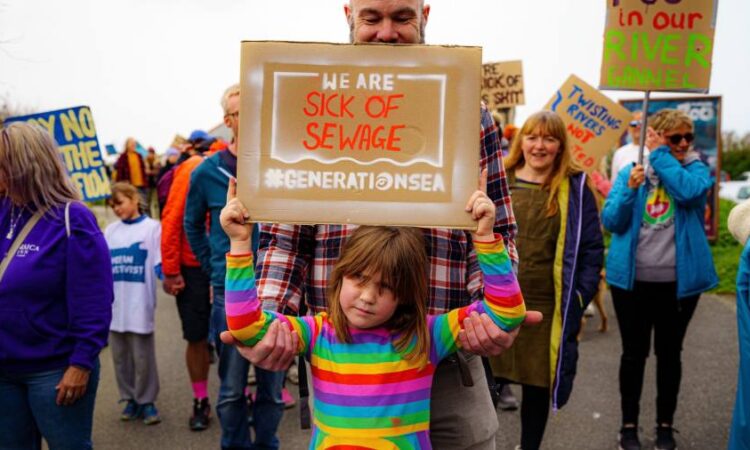
First it was the railways. Then it was the energy suppliers. Now it’s the turn of England’s water companies. One by one, Britain’s former state-owned industries are facing their day of reckoning.
This time, it’s not a broken franchising system or poorly capitalised companies offering customers cut-price energy deals that have opened the floodgates. Instead, it’s something more unpleasant: raw sewage.
Public anger has burst over water companies spilling untreated effluent into England’s rivers, lakes and sea as a system that has suffered from decades of under-investment struggles to cope. Last year, discharges equated to a rate of more than 825 a day, according to Environment Agency data.
As politicians of all hues take aim at the water utilities, some of the industry’s cannier executives are forgoing bonuses as the spotlight turns to companies’ opaque business models and the dividends paid while sewage has been flowing.
The chief executive and chief financial officer of Thames Water, plus the heads of South West Water and Yorkshire Water have all in the past 24 hours decided to — in the words of the latter — do “the right thing”.
Other executives, including those below chief level, would be wise to follow. But other more stringent actions, including rethinking medium-term sewage reduction targets, will be needed for anger to subside.
Charities and campaign groups that have for years diligently monitored sewage spills — and without which the level of the crisis would not now be known — are riding a wave. One such group, Surfers Against Sewage, is planning further nationwide protests on May 20.
Shortly before the announcements on bonus payments, the Financial Times published an analysis showing private sewage and water companies paid out £1.4bn in dividends last year, up sharply from £540mn in 2021, despite an outcry over the sewage crisis. Other criticisms surrounding the industry include lax regulation and high levels of water leakages.
Where is the government in all of this? It’s true that ministers haven’t been sitting on their hands. Environment secretary Thérèse Coffey has pledged to enshrine in law a 2050 sewage reduction target, first published last year.
Unfortunately, say campaigners, that target is backed by weak interim goals. They also worry that it shifts responsibility to the government rather than the water companies themselves. The phased targets meant that the pace of reduction would be “pretty slow” in reaching higher levels, said Richard Benwell of the Wildlife and Countryside Link. He worries that the targets will add “another 20 years” of some degree of sewage outflow into sensitive wildlife sites unless they are tightened.
The Labour party plans to target weak regulation. It is drawing up plans for a new water regulator for England and Wales as the issue looks set to become a key battleground ahead of the next general election. Scotland’s water system is already in state hands.
The financial regulator for water, Ofwat, came in for fierce criticism from a House of Lords committee in March. It was accused of failing to ensure water companies invested sufficiently in necessary infrastructure. The Environment Agency has also found itself under an uncomfortable spotlight.
Ofwat has also been trying to prove it is not deaf to the clamour. It has recently announced several measures, including new powers to penalise water companies that pay out dividends regardless of environmental performance. It has also proposed to accelerate £1.6bn of water company investment, which is tightly controlled under five-year regulatory cycles, to 2023-25 from 2025-30. Just over £1bn of that is aimed at reducing the number of annual average spills from storm overflows by 10,000.
The problem for both of the leading political parties and companies alike is that renationalisation remains popular. Labour has dropped the radical plan of its previous leader, Jeremy Corbyn, to bring back into state ownership several industries including water and energy. Yet the renationalisation of water is favoured by unions and several campaign groups. A YouGov poll in October suggested the water sector was also high among the industries Britons would like to see in public hands.
Water companies insist they have invested more than £190bn since privatisation more than 30 years ago and are taking voluntary actions to reduce overflow spills. They are yet to convince their critics. They and ministers will have to up the ante if they want to avoid fuelling the renationalisation debate.
This is a flood that will not easily drain away.






